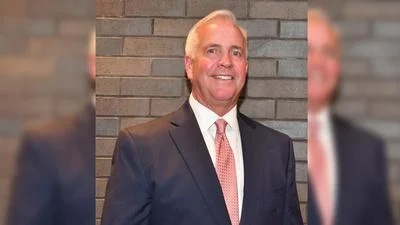Illinois State Rep. Mark Batnick speaks at an event. | State Rep. Mark Batnick/Facebook
Illinois State Rep. Mark Batnick speaks at an event. | State Rep. Mark Batnick/Facebook
Illinois State Rep. Mark Batinick (R-Plainfield) said he has a plan that would get Illinois' finances back on track.
"Illinois is a special place to so many people in our state and across the nation, Batnick wrote in a July 20 Facebook post. “We are a great state with a rich history and terrific communities. Yet we are in poor shape with our state finances, inhibiting us from thriving financially. This is why I outlined a blueprint to get our state fiscally back on track called The Batinick Blueprint."
The representative has developed a nine-point plan that outlines changes that would put Illinois' finances back on track, according to a press release from his office. Batinick's plan includes property tax reform, education reform, increasing state business, modernizing government, business climate balance, health care transparency, recall amendments, pension reform, and variable income tax.
"The Batinick Blueprint is a way we can address our fiscal problems as a state, take the steps to fix these problems, and move forward toward a future of growth," Batinick wrote in the release. "We need to clarify where needed, reduce and remove burdensome regulations, and make the necessary adjustments to move our state in the right direction. I am looking forward to future discussions about these ideas, substantive policies that result from these, and implementing these changes for Illinois. Let’s work together by following the blueprint."
Governments with large debts and deficits run the risk of exacerbating inflation, according to Forbes. Inflation functions as an additional tax on consumers, while also causing uncertainty for investors, leading to slowed economic growth.
As of 2019, Illinois had the fourth highest outstanding government debt in the United States, according to Statista. Illinois' debt stood at $165.1 billion, less than only California, New York, and Texas. Forty-four states and the District of Columbia have outstanding debts of less than $100 billion.






 Alerts Sign-up
Alerts Sign-up